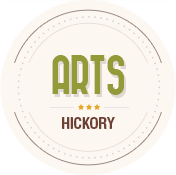Empowering Authentic Performances
Theatre is the most collaborative, live art form. Hickory Arts is dedicated to the preservation of live musical theatre orchestras in Catawba County and surrounding areas.
It should be in the DNA of every arts organization to advocate for the vibrant presence of live musicians in community theatre musical productions. We believe that the energy, emotion, and artistry brought forth by live musicians enriches every performance, creating an immersive experience for both the audience and the performers. By discouraging the use of prerecorded tracks, we aim to foster a culture of collaboration and elevate the quality of local theatre, ensuring that the heart and soul of every production beats with the live rhythm of talented musicians.
I’ve been directing & music directing for 30 years. I’ve been acting since I was 12 and I’ve been a working musician & singer/songwriter since I was a teenager (I’m not doing the math on that). In my time or on my watch, I have never experienced musical community theatre strictly with prerecorded tracks. Broadway recently opened their first production strictly with tracks. It has stirred up quite a controversy with unions and the fundamental integrity of how we define live, musical theatre. Projected and automated sets have also challenged that definition.
This group wouldn’t exist and there wouldn’t be a discussion if it wasn’t also happening on a local level. We could get into the weeds of it all very quickly. “Just because you can doesn’t mean you should.” What are we doing here? Are we doing this or not? Are we willing to do the work? That work begins by finding and hiring people who know what they’re doing. It requires a budget. It requires teaching, workshops, and more. It requires raising awareness. It takes proper preparation and basic organization. For the first time, I have some new students who say they have never performed with an orchestra before. I have students who don’t know what it means to audition and rehearse with an accompanist. How/when did this happen?
I was once on the side of considering tracks for smaller, less funded theatres. I get it. With the exception of junior shows, my response to that is work within your means. Smaller combos. Less musicals per season. Focus. Our talent pool is stretched thin. Producers are stretched thin. Less is more.
Again, this is just my perspective. I’m blessed and cursed with a kaleidoscope of perspectives having served on boards, MD’d and played from pits, behind the soundboard, sat in the director’s chair, tech, design, pro & amateur, film & stage, teaching, and so on. I’ve never seen it like this before and these conversations have become more frequent.
This blog is in response to the growing need for support and discussion. There are a lot of good people doing good theatre. Encourage those going the extra mile. But that extra mile used to be “That’s just what we do.”
You can do more by joining our Off Tracks: Community Theatre Orchestra Preservation Advocates group here. Below are some excerpts of the continued discussion.
Imagine thinking using live musicians for live, musical theatre is “going against the grain?” This was written 13 years ago by a live musicians in theatre advocate. My favorite line from this article… “you as an arts professional also have a responsibility to the future of your art form both to employ working musicians where they are needed and to further the experience and education of the musicians of the future.” more
Sponsorships matter when it comes to what you can or can't do. Should a $20 ticket reflect what you get and who/what it's supporting? Should it be reflected in the advertising? Is it fair for one theatre to give you the experience of a live orchestra, supporting local musicians, for $20 while another theatre gives you a prerecorded experience for the same price? Would you be willing to pay more for live musicians or should the absence of musicians cost less at the box office? Are you getting what you thought you were paying for?


Leave a Reply